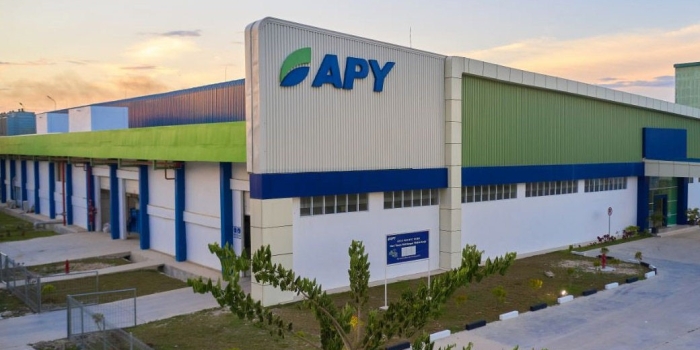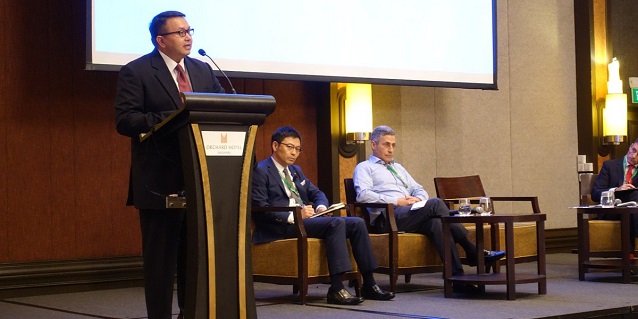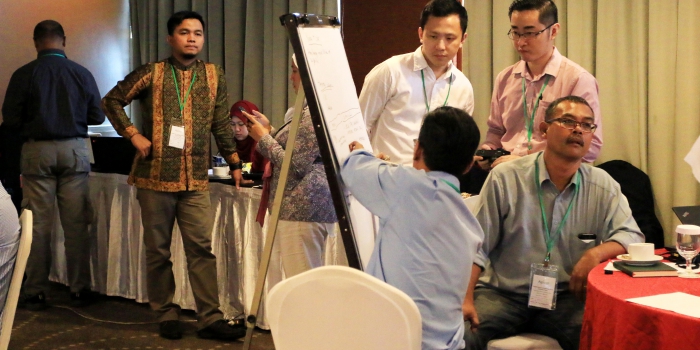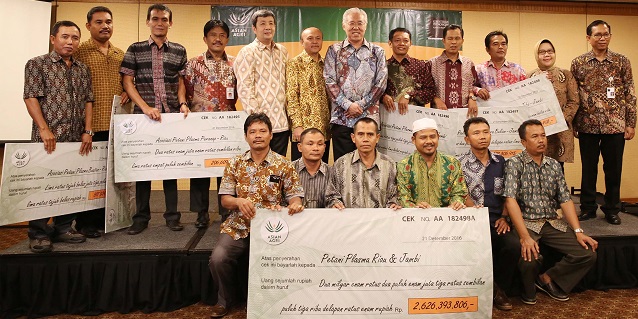This article is an adaptation of “Asia Pacific Rayon is Eager to Maintain the Market’s Growth Momentum in India”, published in Textile Value Chain (textilevaluechain.in). Changes include rewriting some of the passages and adding original materials.
Asia Pacific Rayon (APR), a member of the RGE group of companies, is the first fully integrated viscose rayon producer in Asia from plantation to viscose fibre. The APR mill is situated in Pangkalan Kerinci, Riau, Indonesia and can produce 300,000-tonnes of viscose staple fibre every year. APR is a member of the RGE (Royal Golden Eagle) group of resource-based manufacturing firms, and it operates in accordance with the RGE 5Cs founding principles of doing what is good for the Community, Country, Climate and Customer, and only then will it be good for the Company.
Basrie Kamba, President Director of APR, explained in an interview that the company produces comfortable, breathable, and absorbent viscose rayon from natural wood cellulose, which is used in hygiene products, home textiles, and clothing. It is easy to dye and can be woven or knitted to create soft garments, and is also a biodegradable alternative to synthetic fabrics. The cellulose pulp used in production is sourced from sustainably managed plantations.
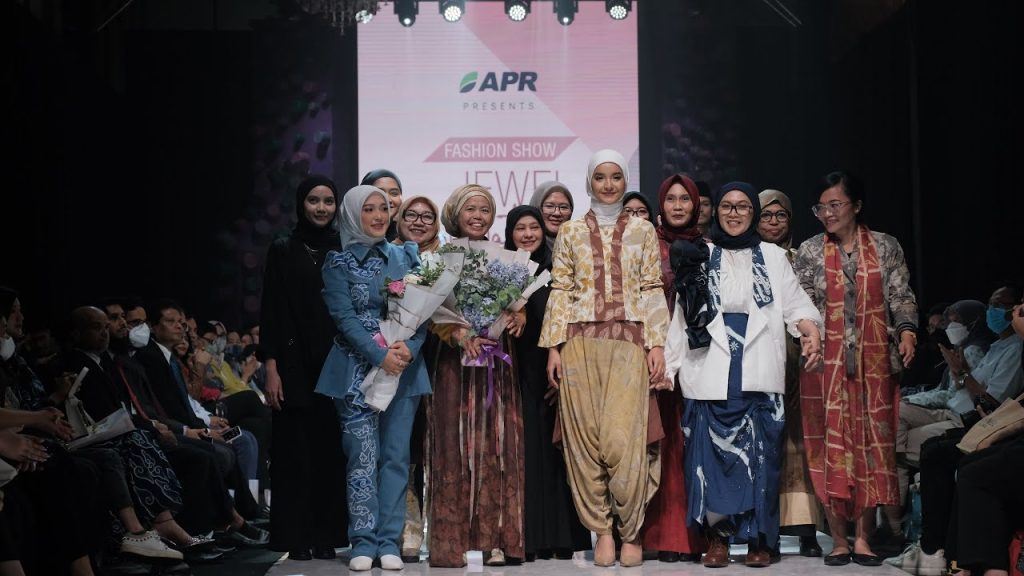
APR collaborates with designers to create sustainable fashion using the company’s viscose rayon fibre
Worldwide Footprint
APR sells its viscose fibre product in Indonesia as well as international markets, including China, Turkey, India, Bangladesh, Vietnam, and Pakistan. “We invest in research and development to improve our product line and engage with stakeholders to ensure our operations are not only successful but also benefit the communities and environment. With an annual capacity of 300,000 tonnes, APR is the world’s largest integrated VSF manufacturer in Asia and is looking to expand its capacity.
APR has high hopes for its future in the Indian market. “The textile and apparel sector in India is crucial for APR. We aim to take an active part in the expanding textile industry in India. We have already sent our viscose fibre to our customers in India. In order to support India’s aim to export textiles worth USD 100 billion by 2030, we intend to collaborate with the local spinners and cater to their requirements. Our objective is to journey alongside them and provide assistance as needed,” Basrie said.
“As a major participant in the viscose-rayon market, our goods are well regarded by clients wishing to use premium, sustainable materials in their creations. We are happy to work with a variety of well-known brands and companies in the textile and retail industries, and we are constantly looking for new collaborations and business possibilities to broaden our influence and reach.”
APR differentiates itself from competitors by investing in circular technology and using sustainably-managed, renewable materials for its viscose production, which helps to reduce the carbon intensity of its products. APR’s chemical recovery procedures enable the recycling of energy and chemicals used in production, minimising waste and reducing their environmental impact. By adopting circular technology, APR is able to reuse and recycle materials in a closed-loop system, creating a more sustainable business model. APR’s commitment to sustainability and circular technology sets it apart from its competitors and positions APR as a leader in environmentally conscious production practices.
“Because we’ve adopted a circular or closed-loop approach, we generate the least amount of waste and emissions while using continually recycled or sustainably obtained raw materials. This procedure results in greater operating efficiencies, such as lowering water intake and raw material consumption and optimising chemical recovery to limit and restrict waste output. It also contributes to a circular economy,” said Basrie.
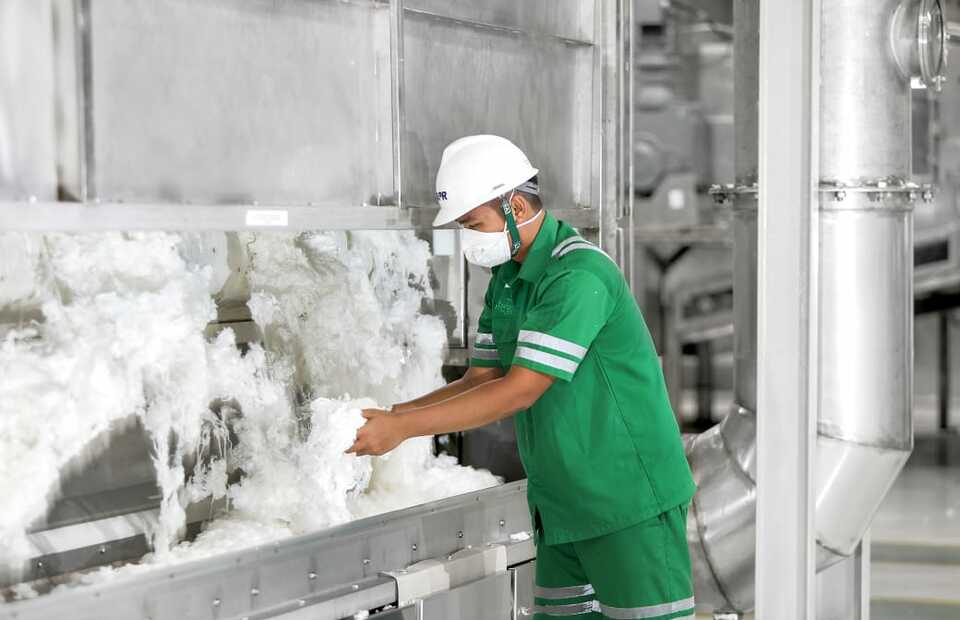
APR invests in circular technology and uses renewable materials for its viscose production
Sustainability Strategy for APR 2030
Basrie emphasised APR’s dedication to sustainability and integration of Sustainable Development Goals (SDGs) into its operations, stating that the APR 2030 plan outlines the company’s objectives and priorities for the next seven years.
APR’s sustainability approach is built on four core commitments: being climate and nature positive, assuring clean and closed-loop manufacturing, increasing circularity, and fostering inclusive prosperity. To be climate and nature positive, APR aims to reduce its carbon footprint while protecting and preserving natural ecosystems. To achieve clean and closed-loop manufacturing, APR works towards a circular system where resources are continually reused and waste in manufacturing processes are minimised.
“Accelerating circularity means we want to go towards a circular economy and increase the proportion of recycled material in our products. Last but not least, we will strive to improve the wellbeing of our workers, clients, and the communities in which we operate. These pledges serve as a foundation for our long-term strategy towards achieving a sustainable future, and we are always looking for new and creative ways to advance our sustainability efforts,” Basrie said.



